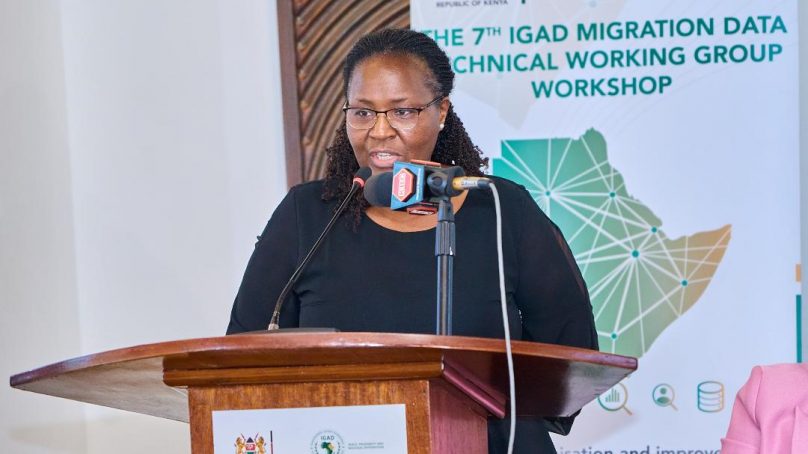
Member-states of the Intergovernmental Authority on Development (IGAD) are ramping up efforts to harmonise and improve migration and displacement data to back up governance and policy-making.
The IGAD region, which includes Djibouti, Eritrea, Ethiopia, Kenya, Somalia, South Sudan, Sudan and Uganda, experiences significant migration dynamics, with large-scale movements of migrants, refugees and internally displaced persons (IDPs) driven by complex social, economic and political factors.
Against that backdrop, accurate, reliable and comparable migration and displacement statistics are vital for understanding the dynamics, formulation of evidence-based policies and fostering cooperation at national, regional and international levels.
However, the region faces persistent challenges, including limited data availability, capacity constraints, and gaps in policy coherence, which hinder effective migration governance.
Speaking in Mombasa during the Seventh Regional Migration Data Technical Working Group meeting, IGAD Director of Health and Social Development, Ambassador Moussa Meigague Ali said member-states are committed to advancing evidence-based approaches to managing migration and displacement challenges.
Ali underlined the importance of harmonised data for the region as it is grappling with a high number of immigrants and forced displacements. He affirmed that IGAD is keen to transform the threats and opportunities.
“We are already advancing in this area because we are already integrating (refugees) into our populations. We give services like education,” Ali said.
The move to come up with statistics will assist some of the member states, like Somalia, Sudan and South Sudan, which are enduring internal conflicts. Ali noted that migration and displacement remain defining features of the region, and the complex movements of refugees, migrants and internally displaced persons continue to shape the social, economic and political economies of the IGAD region.
“These dynamics require not only solidarity but also robust, reliable, and harmonised data to inform policy, foster cooperation and improve protection and development outcomes,” he said.
IGAD, in collaboration with member-states, have made significant strides in building statistical capacity and improving data systems. Some of the milestones are the operationalisation of a regional strategy for the development of statistics, the migration statistics reports and the establishment of this technical working group on migration data and the sub working group on displacement statistics.
In the four-day workshop, the statistics experts from the member-states will develop a detailed action plan that will guide the implementation of migration and displacement statistics activities.
They will also review the draft guidelines on data harmonisation, to enable member-states to strengthen their national systems while ensuring regional comparability and coherence.
“We must continue working together to ensure that migration and displacement data are not only improved but also effectively utilised to inform policies that promote stability, resilience, and development for our region,” Ali urged.
“Together, we can strengthen our collective capacity to manage migration and displacement in ways that are safe, orderly and beneficial for our region,” he added.
The Kenya National Bureau of Statistics (KNBS) Acting Director for Population and Social Statistics Rosemary Bowen pointed out that Kenya is committed to the development of data for planning and resource allocation.
“Migration data is not just about numbers, it is about human lives, their economic, social and political needs,” Ms Bowen said.
She explained that Kenya collects migration information through administrative data, censuses and surveys. The Department of Refugee Services ensures that migrants and refugees, whether they enter through official border points or informally, are registered and legally recognised, enabling them to access services.
Bowen further expounded that migration statistics have wide-reaching implications, while out-migration reduces the population, in-migration increases it, both affecting demand for services and resources.
“At the same time, remittances from Kenyan migrants abroad inject valuable funds into the economy,” she stated.
African Union Representative Brian Okemo noted that accurate, reliable and harmonised migration and displacement statistics are no longer optional but are a necessity for designing effective, evidence-based policies that protect migrants, strengthen resilience and advance sustainable development.
“The action plan and recommendations adopted from this workshop will be vital in supporting member-states to enhance data production, comparability, and utilisation for policy impact at national, regional, and continental levels,” he said.
He added, “There is need to strengthen the governance architecture through coordination and improved data sharing mechanisms amongst producers and users of migration and displacement statistics in the region.”
- A Tell Media / KNA report / By Sadik Hassan and Shamim Musa








